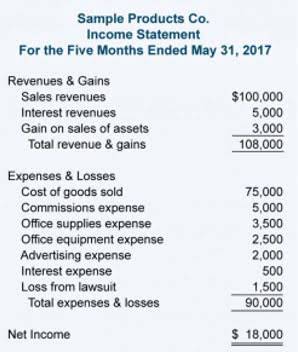Content
- Oversupply and low prices
- Oil and gas after COVID-19: The day of reckoning or a new age of opportunity?
- About Deloitte Insights
- Implications of the new revenue model
- Oil and gas accounting, financial reporting, and tax update
- Lever 4: Organizational agility for new business models
- Lever 3: Recoded careers to build workforce of the future
- Update – Hiring Trends In the Oil & Gas Industry

Noemie Tilghman is the US Energy & Chemicals consulting leader and principal with Deloitte Consulting LLP. Noemie specializes in multi-functional, global service strategy and operating model design programs which drive large-scale cost reduction, process efficiency and effectiveness improvements. Additionally, she also serves as the go-to-market leader for Deloitte’s proprietary Visual Decision Xccelerator (VDXTM) tool. Implementing a new strategy would mean extensive changes in the very foundation of the business.

The current context combines a supply shock with an unprecedented demand drop and a global humanitarian crisis. Additionally, the sector’s financial and structural health is worse than in previous crises. The advent of shale, excessive supply, and generous financial markets that overlooked the limited capital discipline have all contributed to poor returns.
Oversupply and low prices
Unlike most other industries, most oil and gas companies find that they have to use two different accounting methods if they’re part of multiple organizations. Various agencies require companies to use other methods because they differ on which method is better for transparency. As such, they believe one method of accounting is better for accomplishing their organization’s goals. Well-located midstream assets supported by contracts with creditworthy counterparties have proven a successful business model.
And Wells Fargo blames fossil fuel loans for $278 million in commercial loan losses. In answering these questions, companies should base their responses on three givens. The opportunity to lead has never been better—separation between market leaders and laggards will be increasingly sharp. Shaping regulation will matter, and enforcing operating standards will benefit industry and market leaders.
Oil and gas after COVID-19: The day of reckoning or a new age of opportunity?
In this period, the average of the oil and gas industry generated annual TRS growth about seven percentage points lower than the S&P 500 (Exhibit 1). Every subsegment similarly underperformed the market, and independent upstream and OFSE companies delivered zero or negative TRS. The analysis excludes companies that were not listed through this period (including some structurally advantaged national oil companies, and private companies). But the thousands of laid off engineers, technicians, geologists, and rig workers won’t sit around waiting for oil prices to rebound.
- Reports from other organizations on fossil fuel industry bailouts and related topics.
- This is all vital information that hiring managers want to see in a resume.
- Already, many companies have adopted techniques that can substantially decarbonize operations—for example, improved maintenance routines to reduce intermittent flaring and vapor-recovery units to reduce methane leaks (Exhibit 3).
- After years of unprofitable growth fueled by excessive borrowing, the industry faced a reckoning in 2020 when the pandemic quashed demand for fuel.
- While some flaring may be unavoidable, the capacity constraints of infrastructure can lead to more than either companies or the public might want.
- In this market, the oil industry is well placed to lead because it already uses carbon captured via CCUS for use in enhanced oil recovery (EOR).
And while they too have taken a hit this year due to supply chain disruptions and other impacts of the pandemic, the IEA expects that they will rebound in 2021. Renewables have actually proven to be the most resilient energy source during the pandemic, according to the IEA. Once installed, renewable energy is essentially free, so when electricity demand fell, many grid operators turned to the cheapest energy resources to fulfill the falling demand—wind and solar. Global economic activity is expected to slow down over the next 30 years due to the effects of COVID and the impacts of climate change on the economy, according to London-based BP’s 2020 Energy Outlook report.
About Deloitte Insights
Kate Hardin is an executive director at Deloitte Research Center for Energy and Industrials. With an experience of 25 years in the energy industry, Hardin leads Deloitte’s research team focused on the implications of the energy transition for the industrial, oil, gas, and power sectors. She has served as an alumni expert at Yale’s Center for Business and Environment and is also a member of the Council on Foreign Relations. Tom Bonny is a leader of Deloitte’s North America Digital Upstream and Operations practice in Deloitte Consulting LLP. Bonny has over 20 years of experience, with most of it in upstream oil and gas.
Deloitte Insights delivers proprietary research designed to help organizations turn their aspirations into action. Whilst on the subject of resumes, I know for a fact that not everyone is a “hardworking, enthusiastic team player”, yet it appears on almost every resume I see. Have a think about what makes you unique and stand out from everyone else in the market – this is the sort of eye-catching content that you need to be leading with.
Implications of the new revenue model
However, organizations that see the coming decade as an opportunity for transformation will likely not just outlive this compression but may even lead the industry into the future of work. But for that, fundamental changes will be needed across each element of the oil and gas accounting income statement and balance sheet—from traditional on-balance sheet budgeted expenses to off-balance sheet outsourcing, and even shifting to pay-as-you-go models. But efficiencies seem to be plateauing with suppliers having limited room to reduce costs further.

If you have just been laid off, its easy to panic and send your resume or send LinkedIn messages to everyone you know straight away. If you’re spamming everyone in a certain business you will come across as desperate and won’t get hired. The oilfield is a small industry, and good reputations take a long time to create. DON’T devalue your reputation in an hour by sending messages to everyone you know having just been let go. I have sat in hundreds of https://www.bookstime.com/articles/accountant-for-self-employed meetings over the last 14 year with hiring managers who discount good candidates because “they come across as desperate” or have spammed their whole teams, even if they’re perfect for the role. I’ve recruited in the oil and gas industry for nearly 14 years now, and having worked both for agencies and also as an internal recruiter I wanted to share some tips and pointers for those that have recently unexpectedly found themselves on the job market.
The U.S. became the world’s biggest natural gas producer in 2011, and the biggest oil producer in 2018, when crude oil prices were over $75 a barrel. Today many oil and gas companies have gone bankrupt because they borrowed huge sums of money when prices were high, produced an overabundance of oil and gas, and created a glut in supply that led to lower prices. Steel experienced both declining demand and stranded assets due to global shifts in demand, that structurally destroyed value. Mittal Steel built a model around acquiring assets with structural advantage (such as those in insulated markets, and some that allowed backward integration into advantaged raw-material supply) and then cutting costs and improving operations. Nucor combined industry-leading operational capabilities with a first-mover status in electric-arc furnace technology. Others focused on scale and technology in profitable niches like seamless pipe.













